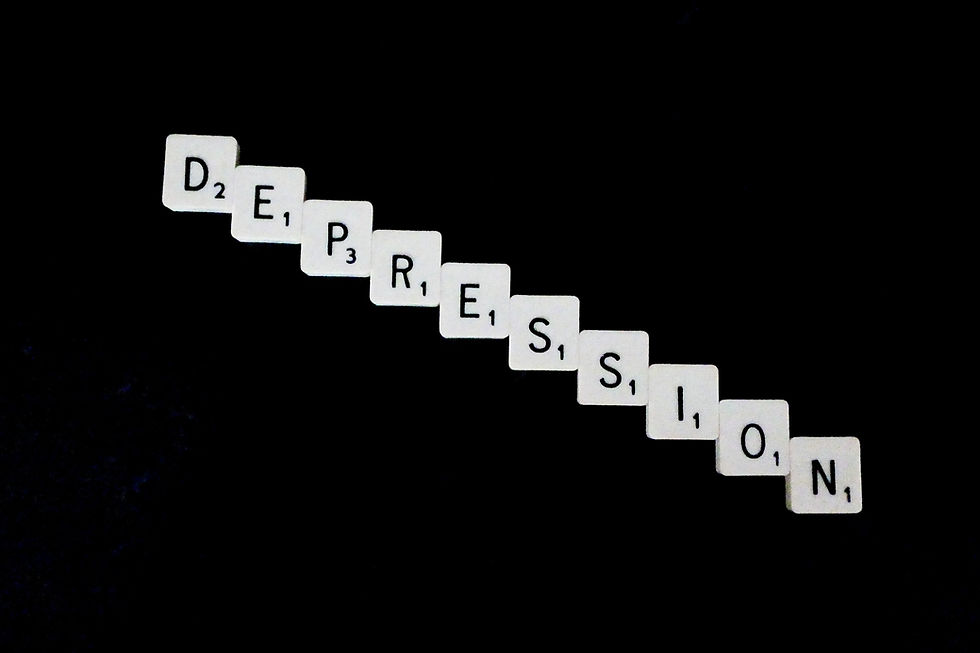'Children don’t get traumatized because they are hurt. They get traumatized because they’re alone with the hurt'. – Dr. Gabor Mate
The trauma of an individual’s childhood that somehow originated from parents is known as parental trauma. It is a very serious issue since in many cases, it is deeply engraved in the memory of a child and holds them back from doing things.
As a result, when the child grows up to be a full-grown adult, the trauma lingers within him and the particular adult fails to live his life to his fullest, unlike other stable and regular adults.

Understanding Parental Trauma and Its Sources
Any child who has been physically abused, neglected, or grew up in an unhealthy environment mainly becomes the victim of parental trauma. In some cases, parental trauma also arises if the child has divorced parents. Therefore, it can be said that a negative parenting style is the root cause of parental trauma.
Abuse
Here, people who are victims of childhood abuse subconsciously develop parental trauma. The abuse here can be either verbal or physical. This further leads to several mental disorders such as depression, PTSD, and more.
Addiction
When it comes to addiction, it doesn't always have to be alcohol. Sometimes parents can be addicted to their professional life.
Therefore, if a parent is addicted to alcohol, career, or anything to an extreme level where their entire life circle around that one particular thing then the child may grow up with a physically and mentally absent parent thus resulting in the development of parental trauma.
Neglect
Neglecting the child is yet another reason that forms the root cause of parental trauma. If the parents are not as involved in their child's life as they should be and instead prioritize other things then this contributes to their kid's parental trauma.
Bad relationship among parents
Parents who share a very disturbing relationship also contribute a lot to watering the kid's parental trauma. Home is supposed to be the safest place in the world and if kids don't find solace there and instead witness all the bitterness between their parents, it may tend to them becoming a victim of parental trauma.

The Immediate Effects of Parental Trauma on Children
Some of the immediate effects of parental trauma on children are mentioned below:-
Emotional and Psychological Impacts
The stress from childhood trauma lasts even beyond childhood where the child may encounter potential learning problems hereby resulting in lower grades, bad behavior in school and so on.
Furthermore, the psychological impact implies the child being scared most of the time and thinking that they is not good enough. If a child is experiencing verbal or physical abuse from his parents, it is more likely that he will develop a feeling of worthlessness. Irrespective of how things go, the kid will end up blaming himself thereby leading to low self-esteem and anxiety at times.
Behavioral Responses to Trauma
Children who suffer from parental trauma have unnatural behavioral responses where they perceive the world in a very unusual way. They will grow up believing that it's an unsafe place out there as a result of which they may develop the feeling of being nervous, clingy, and irritable most of the time. If things become worse then a child may even go to the extent of self-implicating pain and may oddly find comfort in doing so.
Cognitive Distortions and Negative Belief Systems
Cognitive distortions and negative belief systems are yet another immediate effect that one can witness in a child suffering from parental trauma. The constant self-deprecating views about oneself and how negatively a child talks about himself tend to act as a catalyst to their parental trauma.
Sleeping Disorders
One of the primary immediate effects of parental trauma is that the individual may find difficulty in having a proper sleep schedule. Having nightmares are also common which is why a child may fail to function to his full potential as he can’t fall asleep or wake up on time.
Dissociation
Dissociation is yet another immediate effect on a child suffering from parental trauma. A child perceives the whole concept of dissociation as a self-protective survival kit from the entire unbearable trauma. Thus, in a way, it creates a lack of self-connection within the child where at times, the kid fails to be in touch with his thoughts, preferences, and inner true feelings.
Rebellious Nature
Overly strict parenting is also a negative parental trauma that results in growing parental trauma victimized children. Kids who have such a negative and unhealthy environment often indulge themselves in all kinds of wrong and illegal activities such as breaking rules, entering into a verbal or physical fight with parents, and more.

The Long-Term Consequences of Parental Trauma
Parental Trauma contributes to weakening the emotional, mental, and even spiritual stability of a child. Some of the long-term consequences of parental trauma are vividly discussed below:
Physical Health Consequences
A traumatic experience in childhood adversely contributes to damaging the physical functionality of the child. Some of the issues include building a weak immune system, and nervous system as a result of which when the children become an adult, they fail to reach their respective full potential. In simpler terms, some of the common physical health consequences are stroke, asthma, diabetes, and sometimes even coronary heart disease.
Relationship Consequences
The moment a child encounters a situation of trauma with their parents, he immediately tends to believe that the world is full of dangerous people who want to hurt each other. It can be the failure of parents to trust their child or their failure to share a healthy relationship amongst themselves, both of which affect the child deeply.
Thus, as a result, he stops trusting everybody, even his parents.
Since trust is the basic foundation of a relationship when a child with parental trauma enters adulthood; he struggles in forming a relationship as he cannot trust the person in the first place.
Post-Traumatic Stress Disorder
PTSD or Post Traumatic stress disorder is yet another one of the long-term effects of unresolved parental trauma. Since it is a very rare mental health issue, only a minute fraction of the population is affected by it. Some of the common signs of PTSD comprise anger, depression, depression, trust issues, self-destructive behaviors, nightmares, and even flashbacks.
Environmental Risks
People dealing with parental trauma all their life may also witness environmental risks. The trauma can dismantle the victim's relationship both with his professional and personal life.
Some of the common environmental risks are below-average performance at work, struggling to strengthen relationships with friends and partners and such.
Societal Effects
Along with the child suffering from parental trauma, society also suffers to some level. In simpler terms, some of the long-term effects that society has to undergo are their unproductivity and poor performance in school, college, and sometimes even at work thus indirectly affecting the functionality of the economy.

Overcoming Parental Trauma's Influence
To overcome the influence of Parental Trauma, the following steps are advised to do:
Acknowledging the Trauma
To overcome trauma, the first step is to acknowledge and accept that a person is suffering and needs help. This step is necessary since most of the time, the victim tries avoidance where he likes to pretend that nothing horrendous has happened which in turn leads to amplifying the feelings of self-blame and guilt.
Seeking Help
The victim must not feel ashamed to reach out for help. He may think that it’s shameful to seek but the only thing that he is when he reaches out for help is a trauma survivor. Connecting with people is also a stepping stone to the healing process, so it is very important to make and maintain connections.
Try reaching out to a counselor or even a trustable friend or family member. One can also join a support group of survivors of parental trauma to not feel alone in the healing process.
Moving On
One must always understand that acceptance doesn’t mean embracing, especially when it is trauma. It’s the other way around where acceptance means reaching a point where one has realized the incident and is not letting that traumatic event dictate his life. Gradually, letting it go by not allowing it to aggressively affect one’s life and instead living a fresh life.
Conclusion
Undoubtedly, becoming a parent is a very sensitive, emotional roller coaster as it comes with the huge responsibility of being patient, and understanding with children along with teaching them the right measures, and voice tone whenever they do something wrong. It is very important to achieve the perfect balance to avoid any kind of future mishap that may affect the child.

Comments